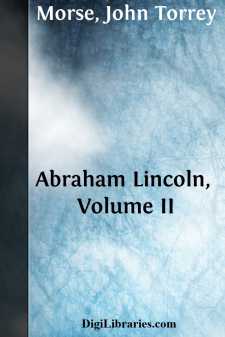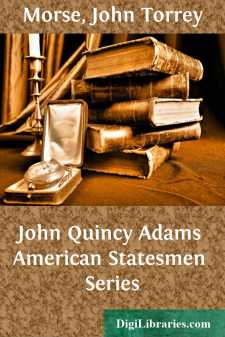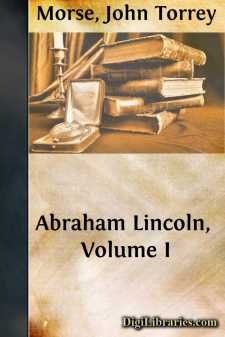Categories
- Antiques & Collectibles 13
- Architecture 36
- Art 48
- Bibles 22
- Biography & Autobiography 813
- Body, Mind & Spirit 142
- Business & Economics 28
- Children's Books 17
- Children's Fiction 14
- Computers 4
- Cooking 94
- Crafts & Hobbies 4
- Drama 346
- Education 46
- Family & Relationships 57
- Fiction 11829
- Games 19
- Gardening 17
- Health & Fitness 34
- History 1377
- House & Home 1
- Humor 147
- Juvenile Fiction 1873
- Juvenile Nonfiction 202
- Language Arts & Disciplines 88
- Law 16
- Literary Collections 686
- Literary Criticism 179
- Mathematics 13
- Medical 41
- Music 40
- Nature 179
- Non-Classifiable 1768
- Performing Arts 7
- Periodicals 1453
- Philosophy 64
- Photography 2
- Poetry 896
- Political Science 203
- Psychology 42
- Reference 154
- Religion 513
- Science 126
- Self-Help 84
- Social Science 81
- Sports & Recreation 34
- Study Aids 3
- Technology & Engineering 59
- Transportation 23
- Travel 463
- True Crime 29
Abraham Lincoln, Volume II
Description:
Excerpt
CHAPTER I
During the spring and summer of 1861 the people of the North presented the appearance of a great political unit. All alleged emphatically that the question was simply of the Union, and upon this issue no Northerner could safely differ from his neighbors. Only a few of the more cross-grained ones among the Abolitionists were contemptuously allowed to publish the selfishness of their morality, and to declare that they were content to see the establishment of a great slave empire, provided they themselves were free from the taint of connection with it. If any others let Southern proclivities lurk in the obscure recesses of their hearts they were too prudent to permit these perilous sentiments to appear except in the masquerade of dismal presagings. So in appearance the Northern men were united, and in fact were very nearly so—for a short time.
This was a fortunate condition, which the President and all shrewd patriots took great pains to maintain. It filled the armies and the Treasury, and postponed many jeopardies. But too close to the surface to be long suppressed lay the demand that those who declared the Union to be the sole issue should explain how it came about that the Union was put in issue at all, why there was any dissatisfaction with it, and why any desire anywhere to be rid of it. All knew the answer to that question; all knew that if the war was due to disunion, disunion in turn was due to slavery. Unless some makeshift peace should be quickly patched up, this basic cause was absolutely sure to force recognition for itself; a long and stern contest must inevitably wear its way down to the bottom question. It was practical wisdom for Mr. Lincoln in his inaugural not to probe deeper than secession; and it was well for multitudes to take arms and contribute money with the earnest asseveration that they were fighting and paying only for the integrity of the country. It was the truth, or rather it was a truth; but there was also another and a deeper truth: that he who fought for the integrity of the country, also, by a necessity inherent in the case and far beyond the influence of his volition, fought for the destruction of slavery. Just as soon as this second truth came up and took distinct shape beside the other, angry political divisions sundered the Unionists. Abolition of slavery never displaced Union as a purpose of the war; but the two became mingled, in a duality which could not afterward be resolved into its component parts so that one could be taken and the other could be left. The union of the two issues meant the disunion of the people of the Middle and even of the Northern States.
In the Border States a considerable proportion of the people was both pro-slavery and pro-Union. These men wished to retain their servile laborers under their feet and the shelter of the Union over their heads. At first they did not see that they might as well hope to serve both God and Mammon. Yet for the moment they seemed to hold the balance of power between the contestants; for had all the pro-slavery men in the Border States gone over in a mass to the South early in the war, they might have settled the matter against the North in short order....





